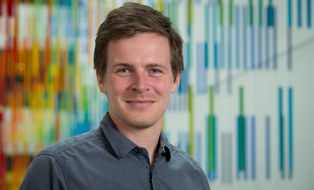HORUS
Dynamic Wastewater Characterisation by Spetrophotometric Methods
In recent years, the spectral online measurement approach was increasingly established to generate multiple water quality information on wastewater systems. The description of dynamic transport processes of wastewater constituents in combined sewer systems is up to now based on distinct measurement uncertainty. The reason for this is the common static calibration approach that does not take changing wastewater composition into consideration.
Within the project, a dynamic calibration approach adapting to the weather-related runoff conditions will be developed, in order to enable a robust quantification of the wastewater parameters chemical oxygen demand (COD) and total suspended solids (TSS) as well as their fractions and size class distribution, respectively, under various boundary conditions. The basis of this will be provided by identifying separate calibration functions for different wastewater compositions depending on runoff conditions, i.e. dry- and wet-weather as well as mixed conditions, and by developing an automatic switching function between the calibration functions or by developing a dynamic integrating calibration function. Using the UV-Vis spectrophotometry as a measurement method, several state variables can be detected simultaneously and continuously, which allows to implement a detailed description and modelling of dynamic mass transport processes.
In the city of Dresden, measurement campaigns will be realized at sites in urban sub-catchments with combined sewer systems as well as in rivers receiving combined sewer overflows. Event-specific compounds transport phenomena will be recorded online and continuously with spectrophotometers. During the events, samples will be collected intensely and analyzed in the laboratory for calibration and quantitative interpretation of the spectral signals.
The analysis of detailed and well-resolved spectral information is based on regression models, which are extracted from a comparative evaluation of uni- and multivariate approaches. For COD and its fractionation as well as for TSS and particle size classes, calibration functions will be developed for various operation conditions and validated and verified with the measurement campaigns. Criteria for switching between the various condition-based calibration functions will be evaluated and automated using the spectral online signals.
By means of numerical simulation, the potential of the improved measurements shall be evaluated. For that, an adequate calibration algorithm considering the dynamics of flow and mass transport processes will be developed, which reflects the high temporal resolution of measurement-based information. The created model will finally be used to investigate first-flush induced compounds load peaks and resulting acute receiving water impacts as well as to evaluate the improvements of the outcomes as compared to those produced with conventional modelling.
| Projektträger | Deutsche Forschungsgemeinschaft (DFG) |
| Förderprogramm | Einzelförderung - Sachbeihilfe |
| Projektleiter | Prof. Dr. Peter Krebs |
 © K. Lassig – TU Dresden
© K. Lassig – TU Dresden
Research Associate
NameSteffen Weber (Dipl.-Ing.)
Send encrypted email via the SecureMail portal (for TUD external users only).
Visitor address:
Chemie-Bau, Room 157 Bergstraße 66
01069 Dresden
None
Office hours:
Please arrange an appointment via email.
Aktuelle Themenvorschläge
| Art | Thema |
| MA | Bestimmen von Kohlenstoffkonzentrationen mit UV/Vis-Messtechnik in synthetischer Wasser-/Abwasserprobe - summarisch, differenziert (Messen + Statistik) |
| MA | UV-VIS-Spektroskopie - Eine stetig an die wechselnden Abflussbedingungen angepasste Kalibrierung |
| BA/MA | Bestimmen von Partikelgrößenfraktionen in einer Abwasserprobe |
| MA/SP | Kohlenstoffumsatzprozesse in der Mischwasserkanalisation (messen+modellieren) |
Details können in einem persönlichen Gespräch erfragt oder unter Abschlussarbeiten und Studienprojekte nachgelesen werden!
Laufende Arbeiten
| Art | Thema | Bearbeiter |
| MA | Extinktionsverhalten gelöster Kohlenstoffverbinden in einer Abwasserprobe - Mobiler Reaktor | Wittwer |
Abgeschlossene Arbeiten
| Jahr | Art | Thema | Bearbeiter | Link |
| 2019 | SP | Partikulär gebundene Spurenstoffe im Abwasser - Untersuchung von feststoffgebundene Arzneimittelrückstände in einem Teil-EZG Dresdens | Mayer, Walter | |
| 2019 | BA | Erprobung eines Partikelmesssystems zur Analyse häuslichen Schmutzwassers | Pförtner | |
| 2019 | SP | Kohlenstoffumsatzprozesse in der Mischwasserkanalisation | Baier, Schulz | |
| 2019 | BA | Einflussnahme des Kanalsediments auf die Wasserqualität | Zimmermann | |
| 2019 | BA | Kompensation von Störeinflüssen auf UV/Vis-Zeitreihen | Schwendel | |
| 2019 | MA | Determination of fine solid fractions in wastewater using in-situ spectroscopic measurement technology | Abraham | |
| 2018 | BA | Optische Spektrometrie - Wasserqualitätsmessung in der Siedlungswasserwirtschaft | Täubert | |
| 2018 | BA | Extinktionsverhalten gelöster Kohlenstoffverbinden in einer Abwasserprobe | Linden | |
| 2018 | MA | Vorabanalyse optischer Extinktionsmessungen zur Qualitätsteigerung der Kalibrierung | Pradel | |
| 2018 | BA | UV-VIS-Spektroskopie - Dynamische Kalibrierung mit diskreten Wechselsignal | Walther | |
| 2014 | BA | Analyse des fraktionenspezifischen Abbauverhaltens des Chemischen Sauerstoffbedarfs in einer TW-Abwasserprobe | Paul | |
| 2014 | BA | Charakterisierung der Abwasserzusammensetzung mittels UV-VISSpektroskopie unter Trocken- und Regenwetterbedingungen | Krause |

